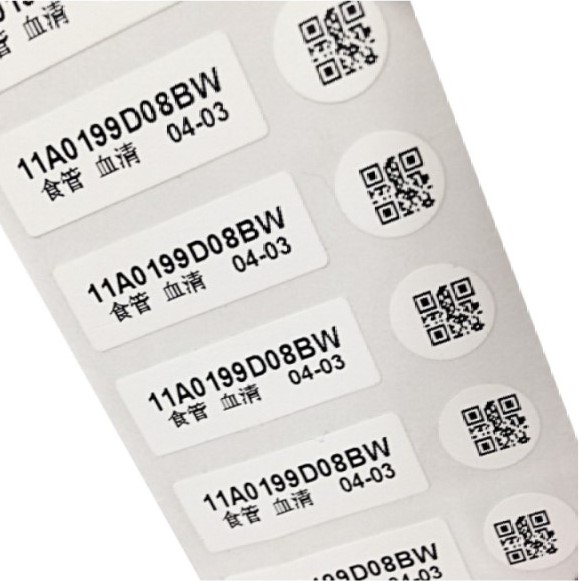
Solvent resistant label
Solvent resistant labels are suitable for industrial production and manufacturing fields. The label can withstand gasoline, xylene, acetone, butanone, ethyl acetate, isopropanol, methanol, ethanol, and high temperature baking (200 ℃). The label has clear handwriting, firm adhesion, no damage, and no detachment, ensuring the normal and orderly operation of industrial production.
The solvent resistant label printing uses special environmentally friendly carbon tape, and the labels produced are suitable for industrial production. Special requirements for labels are required in the industrial production process, which involves exposure to special environments such as gasoline, xylene, acetone, butanone, ethyl acetate, isopropanol, methanol, ethanol, and high-temperature drying. The labels must be able to withstand the test, with clear handwriting, intact labels, and no detachment.
This label can display product information and management barcodes, create various labels through a label printer, and paste them on corresponding processing equipment and components. It can quickly and easily identify equipment and components, providing a simple, easy-to-use, cost-effective and convenient identification label solution for your product production management.
Solvent resistant label paper
A solvent resistant label is a specially designed label primarily used to identify or adhere to surfaces that may come into contact with various solvents. These solvents include but are not limited to formaldehyde, xylene, alcohol, gasoline, etc. Solvent resistant labels have excellent solvent resistance and can withstand prolonged exposure or immersion in solvents without swelling, dissolution, cracking, or deformation, thereby maintaining the integrity and readability of the label.
Solvent resistant labels are typically made of special materials and adhesives to ensure their stability and durability in harsh environments. These materials may include polyester, polyimide (PI), nylon fabric, etc., all of which have excellent resistance to chemical solvents. Meanwhile, solvent resistant labels also have good scratch resistance and stain resistance, making them suitable for various industrial and commercial environments.
Solvent resistant labels are widely used in fields such as electronic components, automobiles, liquid and chemical containers, especially in applications that require high wear resistance and solvent resistance. They not only provide necessary identification information, but also ensure the stability and reliability of the labels during long-term use.
Characteristics of solvent resistant labels
Solvent resistant label is a special label designed specifically for harsh chemical environments, characterized by its excellent resistance to multiple solvents. This label can effectively withstand the corrosion of various solvents such as xylene, gasoline, acetone, butanone, ethyl acetate, isopropanol, methanol, and ethanol. Even under long-term contact or immersion, the label can remain intact and the information is clear and readable.
It also has excellent high-temperature baking resistance, which can maintain stability in high temperature environments and is not easily deformed or faded. For occasions that require frequent alcohol wiping, solvent resistant labels also demonstrate excellent wiping resistance, ensuring that the label content remains unchanged for a long time. In summary, solvent resistant labels, with their comprehensive solvent resistance, high temperature resistance, and wiping resistance characteristics, have become an indispensable identification solution in multiple fields such as electronic components, automotive manufacturing, and chemical containers, providing solid guarantees for the tracking, management, and safe use of various products.
Printing and processing methods for certificate labels
1. Flexographic printing method, commonly using UV ink or alcohol based ink. Before printing film materials, corona treatment should be stopped to increase the surface tension. The method of surface coating can also be used to improve the firmness of ink application. Require polishing after printing to protect the graphics and text. It is not advisable to use water-based ink to avoid the phenomenon of weak ink layer.
2. Gravure printing method, which prints on ordinary gravure printing machines (usually using wide width gravure printing machines), using solvents or UV ink. The printed labels are first divided into small rolls by a slitting machine, and then die cut, discarded, and rewound on a processing machine. Cut into individual rolls on the public slitting machine and prepare for labeling on the labeling machine.
3. The gravure reverse printing method is a split printing method. Firstly, print graphics and text on the back of the public transparent PVC film using the inner printing method, and then vacuum coat the exterior of the graphics and text with aluminum to cover them. The second step is to manufacture the certificate label using printed and aluminum coated PVC film as raw material according to the adhesive material manufacturing process. Complete the entire label processing process on the label processing machine and slitting machine using the coated certificate label.
Electrostatic labeling
Craftsmanship: Cross cutting printing white
Advantages: Smooth surface with strong adhesion, can be repeatedly peeled and pasted, no glue, no traces left, can be peeled and pasted immediately, waterproof and temperature resistant, long service life, environmentally friendly and hygienic.
Disadvantages: Poor adhesion of electrostatic stickers, easy to fall off
Applicable scenarios: car window pasting (maintenance reminder and annual inspection label pasting) window grilles, etc
We offer comprehensive technical support, including free professional labeling solutions, advice on label materials and adhesive selection, as well as online/offline assistance from professional software and hardware engineers. Service email: andy@ownlikes.cn. In pre-sales, we leverage our extensive experience in specialty labeling projects to provide clients with the most suitable hardware solutions. Additionally, all our label barcode printers and scanners come with a three-year free warranty, demonstrating our confidence in our products.


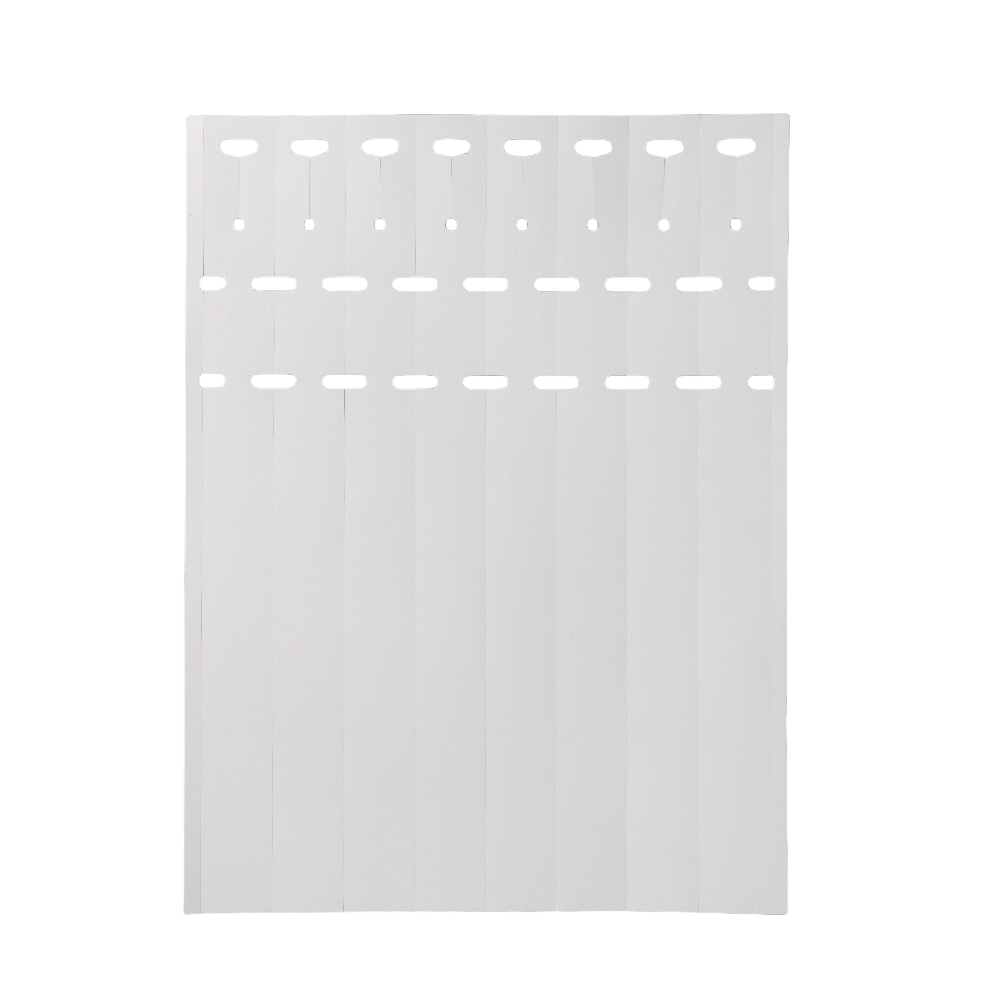
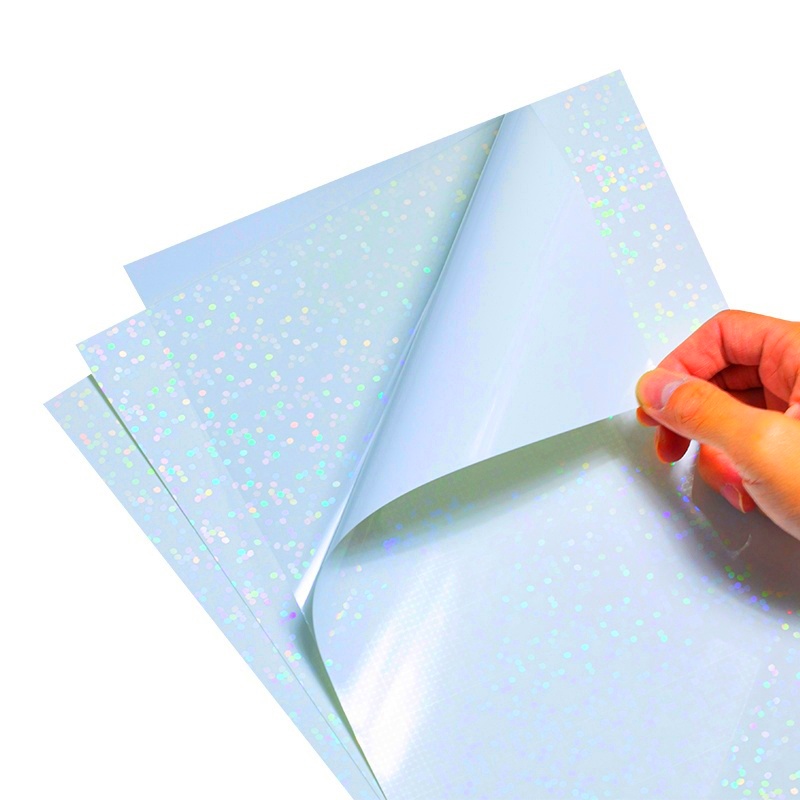
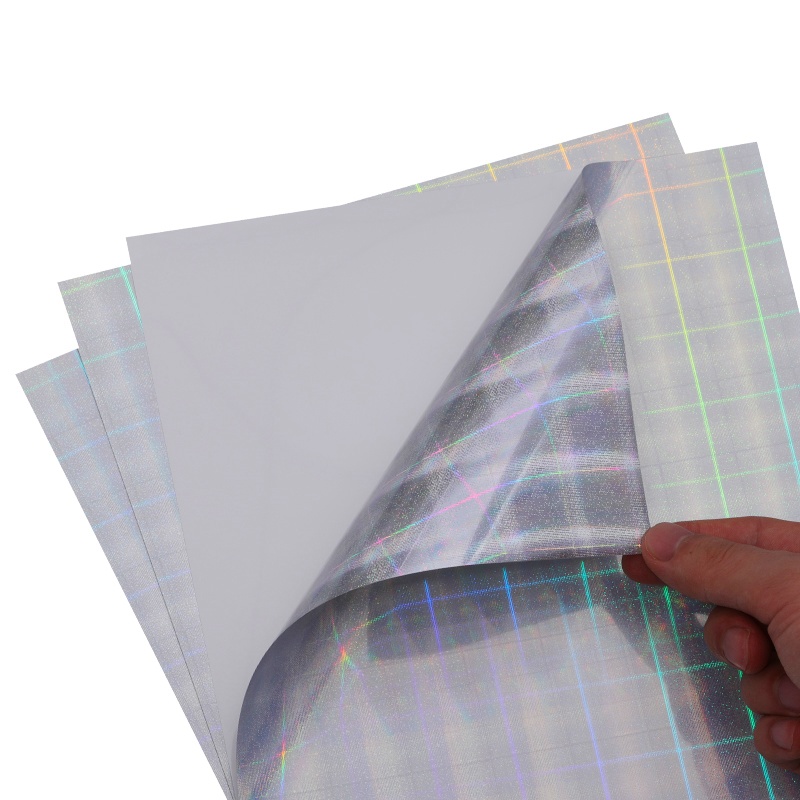
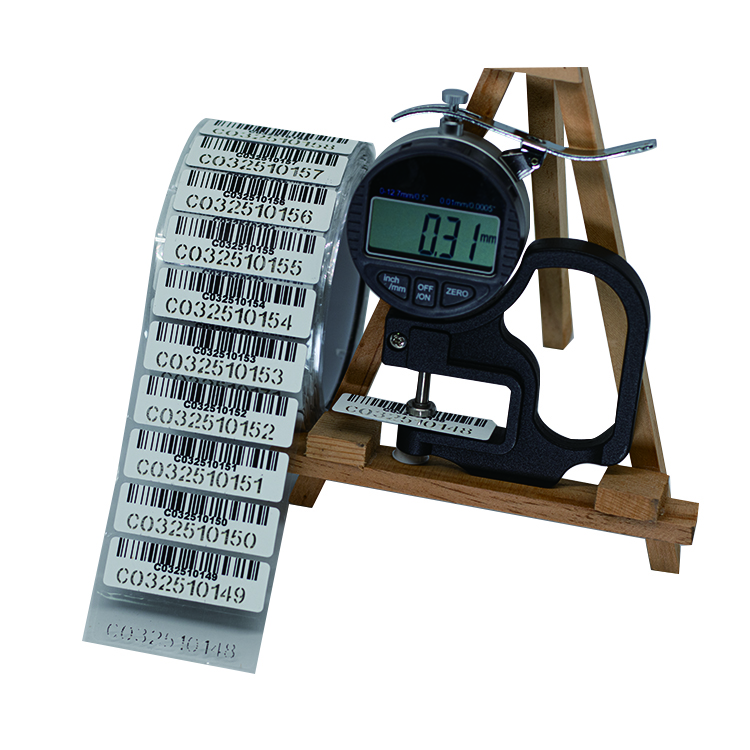
This site is protected by reCAPTCHA and the Google Privacy Policy and Terms of Service apply.